Wheel of Health
Stark's methodology tackles each facet of well-being comprehensively. We contend that these ten aspects encompass every dimension of health, serving as objective benchmarks for optimal well-being.

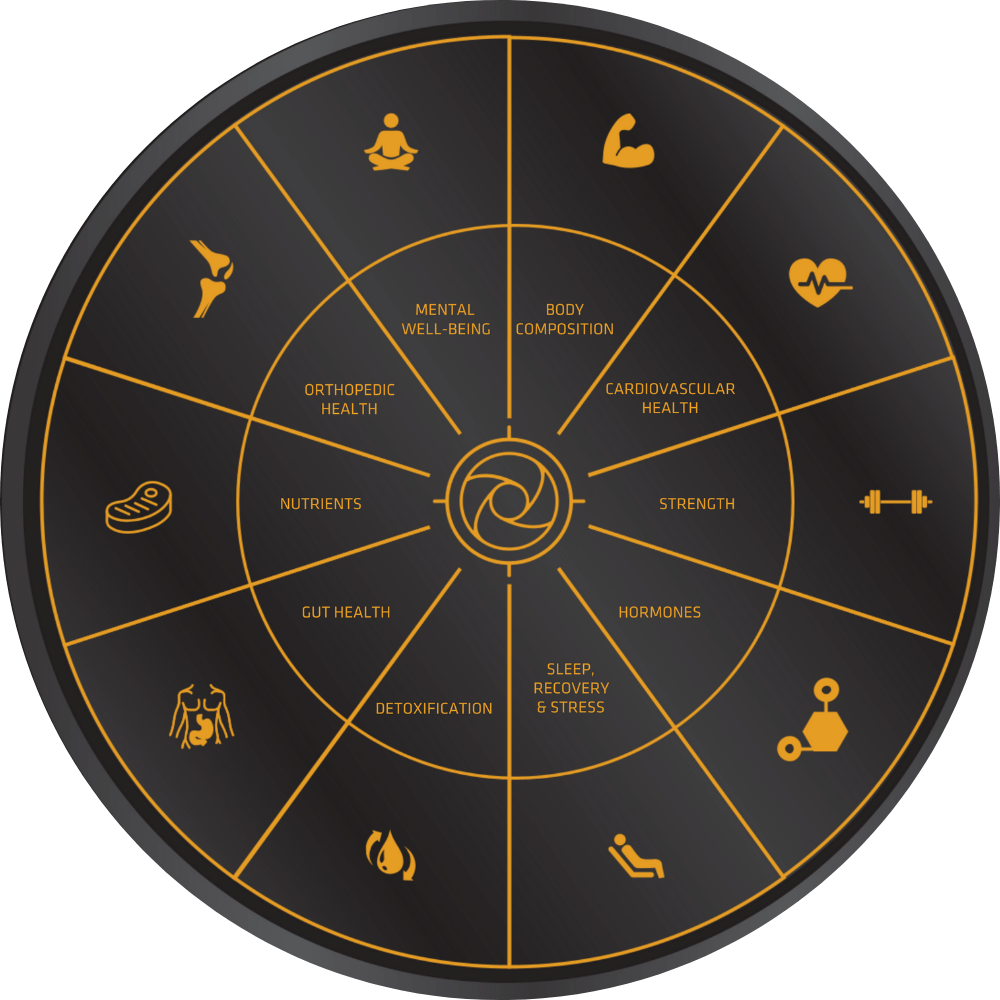
How the Wheel of Health Works
The sequence is deliberate and should not be altered as each spoke affects those adjacent to it. There's no definitive hierarchy for addressing them, instead we prioritize based on the lowest perceived spoke and progress from there.
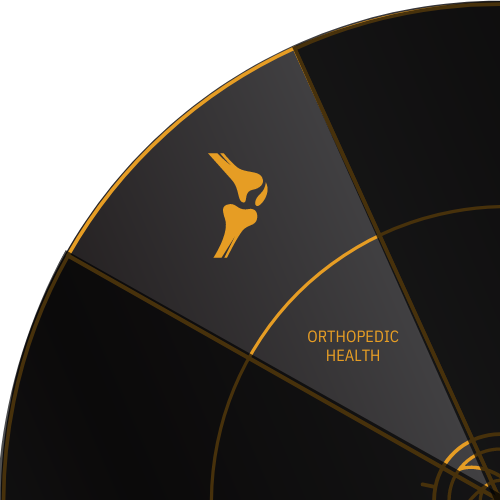
Orthopedic Health
WHAT: Orthopedic health refers to the well-being of the musculoskeletal system, which includes bones, joints, muscles, ligaments, tendons, and related structures.
WHY: We focus on promoting proper biomechanics in order to treat pain and prevent injuries, diagnose and manage any musculoskeletal issues, and facilitate rehabilitation and recovery to optimize physical well-being and quality of life.
HOW: We measure this through a joint-by-joint orthopedic exam to assess factors such as range of motion, strength, stability, pain levels, functional abilities, and quality of life related to musculoskeletal function.
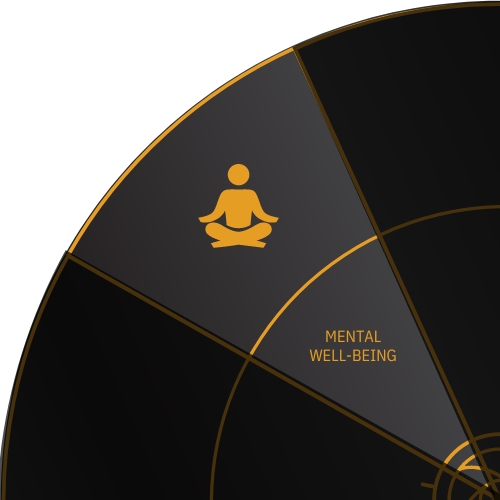
Mental Well-being
WHAT: Mental well-being encapsulates the cognitive, emotional, and psychological aspects of health, including thoughts, feelings, behaviors, and coping mechanisms. Your mental well-being includes maintaining resilience, managing stress, fostering positive relationships, and seeking support when needed.
WHY: Mental well-being emphasizes the importance of self-awareness, self-care practices, and motivation to promote wellness and enhance overall quality of life.
HOW: Mental well-being is measured by a combination of blood work to monitor cognitive function and systemic inflammation, as well as from reporting on mood, emotions, social functioning, and coping skills.
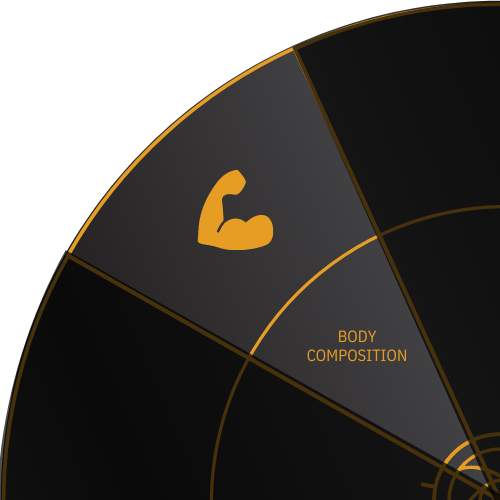
Body Composition
WHAT: Body Composition is the proportion of what a person’s body is made up of, such as fat, muscle, bone, organs, and other tissues.
WHY: Tracking body composition provides insights into overall health indicators like visceral fat, your fitness level and muscle mass, as well as risk factors for chronic diseases.
HOW: At Stark, we track body composition using DEXA scans, the gold standard in measuring this component of health. Additionally, we can also use reporting such as how your clothes fit as a loose guide as well.
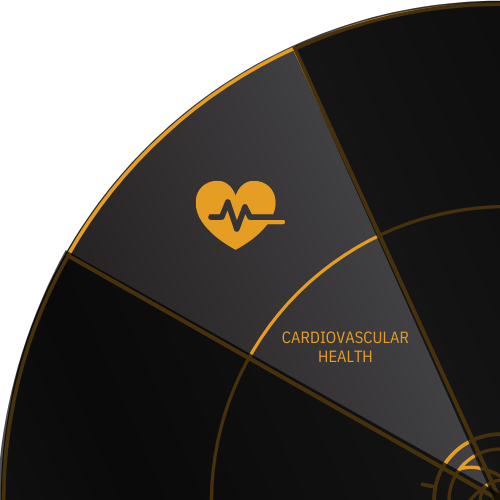
Cardiovascular Health
WHAT: Cardiovascular health considers the well-being of the heart and blood vessels, plus encompassing factors such as blood pressure, cholesterol levels, heart rate, and overall circulatory function.
WHY: Maintaining cardiovascular health is essential for longevity and reducing the risk of heart disease, stroke, and other cardiovascular conditions.
HOW: A number of components of cardiovascular health can be measured using specific bloodwork and blood pressure reading, as well as reporting on certain lifestyle, exercise, and nutrition factors.
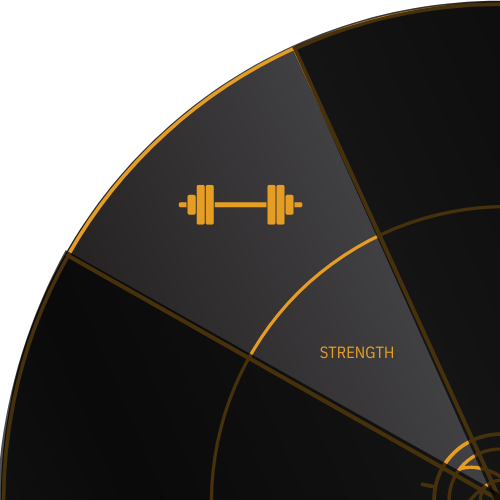
Strength
WHAT: Strength is the physical ability to exert force against resistance. This includes power, endurance, agility, and other necessary forms of strength in all ages.
WHY: Strength is crucial for functional movement, injury prevention, building muscle, longevity, and overall physical performance.
HOW: Strength can be measured in a number of ways through weightlifting and resistance training.
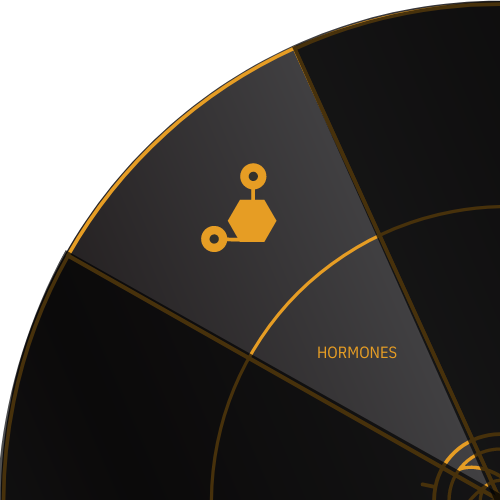
Hormones
WHAT: Hormones are chemical messengers produced by various glands in the body that regulate numerous physiological processes.
WHY: Hormones play a critical role in metabolism, growth, reproduction, mood, and stress response. Imbalances can lead to a vast range of health issues for both men and women.
HOW: Hormones are primarily measured through blood work, and sometimes through sleep tracking as well.
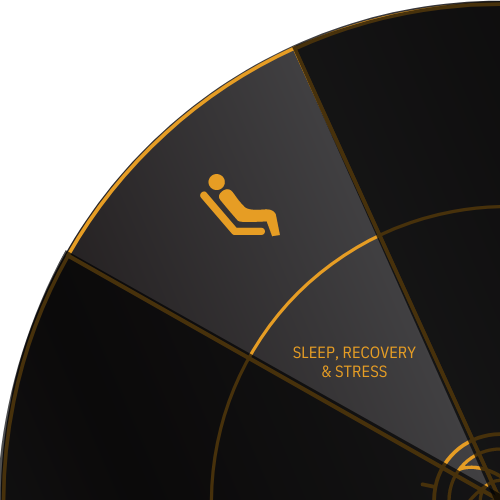
Sleep, Stress, & Recovery
WHAT: This health component encompasses how much and the quality of sleep you get, physiological and mental stress, plus recovery as the body's ability to recuperate from physical and mental exertion.
WHY: Sleep, Stress, & Recovery is essential for overall well-being, cognitive function, immune health, body composition, and performance.
HOW: Sleep, Stress, & Recovery can be measured through sleep tracking, heart rate variability, and reported energy levels, muscle fatigue, or soreness.
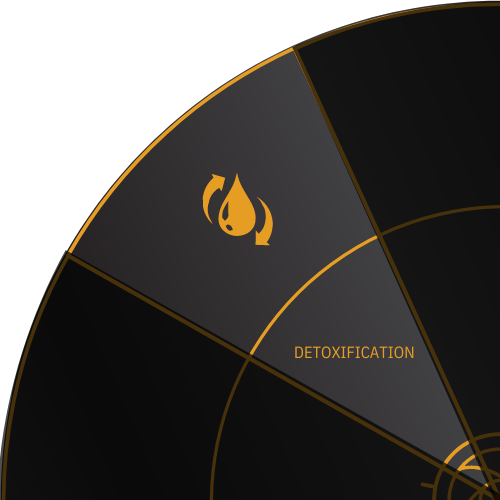
Detoxification
WHAT: Detoxification is the process by which the body eliminates toxins and metabolic waste products.
WHY: Effective detoxification is crucial for maintaining optimal health, reducing the burden on organs such as the liver and kidneys, and preventing the buildup of harmful substances in the body.
HOW: Detoxification can be measured by how often we sweat. Additionally, biomarkers such as liver enzymes, kidney function tests, and markers of oxidative stress can be measured to assess detoxification capacity.
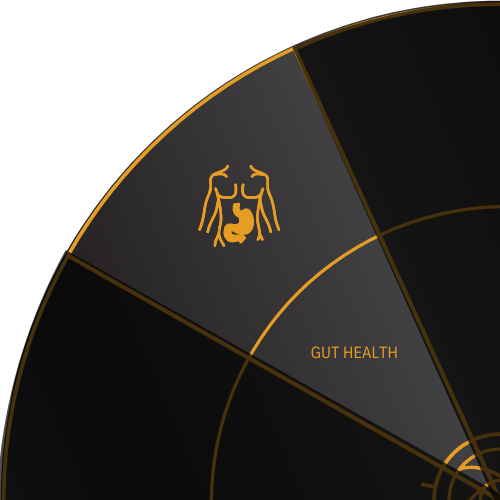
Gut Health
WHAT: Gut health refers to the integrity of the gastrointestinal tract and balance of microorganisms.
WHY: Gut health influences digestion, nutrient absorption, immune function, brain function, and overall health. A healthy gut microbiota can reduce inflammation, improve digestion, build the immune system, as well as influence mood, cognition, and mental well-being through the gut-brain axis.
HOW: Gut health can be measured with functional testing including stool analysis, breath tests for bacterial overgrowth, and evaluation of digestive symptoms. Biomarkers such as inflammatory markers and gut permeability can also be tested.

Nutrition
WHAT: Nutrition provides the body with essential nutrients such as vitamins, minerals, carbohydrates, proteins, and fats that are necessary for growth, development, and maintenance of health.
WHY: Nutrition plays a critical role in supporting various physiological functions, including metabolism, cellular repair, immune response, cognitive function, and more. A balanced and nutritious diet can help reduce the risk of chronic diseases such as obesity, diabetes, heart disease, and certain cancers. Furthermore, good nutrition is essential for promoting optimal physical performance and supporting longevity.
HOW: Nutrition can be measured using both bloodwork and food tracking
3 min read
Understanding the Wheel of Health: Stark's Comprehensive Approach to Well-Being
May 30, 2024 by Stark
2 min read
What is a DEXA Scan?
Jan 28, 2023 by Stark


.png?width=70&height=70&name=Stark_LogoMark%20(1).png)